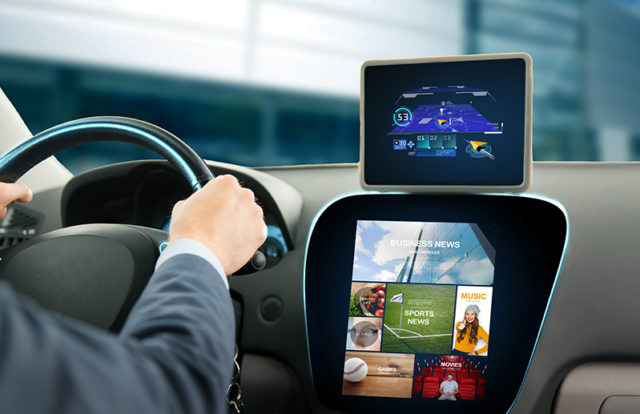
We are inching toward an era where every car of the future will sip fuel, tick all econoboxes, and finally will be an extension of the connected world. Every automaker, every now and then, comes up with a newer and better illustration. With connected vehicles proliferating and multiplying, we can well be sure of one thing: microprocessors and sensors will continue to drive your cars. But, vehicle cybersecurity deserves the same amount of attention. A new survey commissioned by Irdeto, a cybersecurity firm, points out that people have been increasingly concerned about automotive cybersecurity. The survey was conducted between October 25, 2017, and November 9, 2017, where 8,354 representing six countries, including Canada, China, Germany, Japan, United Kingdom and United States, participated.
One of the most startling revelations of the survey was that most owners did not believe that they owned a connected car. “The survey found that 93 percent of consumers indicated that they do not own or do not know if they own a connected car. Further, of the consumers surveyed, 49 percent stated that they do not own a connected car and do not plan on purchasing one in the future,” the report stated. It concluded that “the percentages of consumers stating that they do not own and/or will never buy a connected car are very high, this simply could be a product of consumers not being aware of the features and functionality that make up a connected vehicle.”
On the bright side, several respondents stated that they understood vehicle cybersecurity and the vulnerability to cyber attacks, with nearly 59 percent stating that they were concerned that their vehicle would be compromised. Also, most consumers were aware that autonomous cars may invite cybersecurity risks.
Region wise, 90 percent of consumers from Canada and the UK were concerned about cyber attacks on cars, while consumers from China were least convinced, where only 23 percent of consumers felt that automotive cybersecurity scenario is highly likely.
The survey also pointed out that “awareness may come with age. The percentage of consumers who believe that a connected vehicle has the potential to be targeted by a cyber attack increased with each age group. Millennials (18-24 years-old) were the age group that most believe this scenario is not possible, with only 24 percent stating this isn’t possible, while 88 percent of consumers 55+ believe that vehicles are targets for cyber attacks.”
The survey concluded that even though consumers still lack awareness and knowledge on the subject and “may not completely understand what components in their vehicle make up a connected car, they do understand that vehicles have the potential to be targeted by a cyber attack. It is possible that recognizing the cybersecurity risks associated with connected cars could be impacting the number of consumers who stated they are not planning on purchasing a connected car. With 49 percent stating that they do not own a connected car and do not plan on purchasing a smart vehicle in the future, the safety implications of not properly securing a connected car could impact purchasing numbers of connected vehicles.”






















